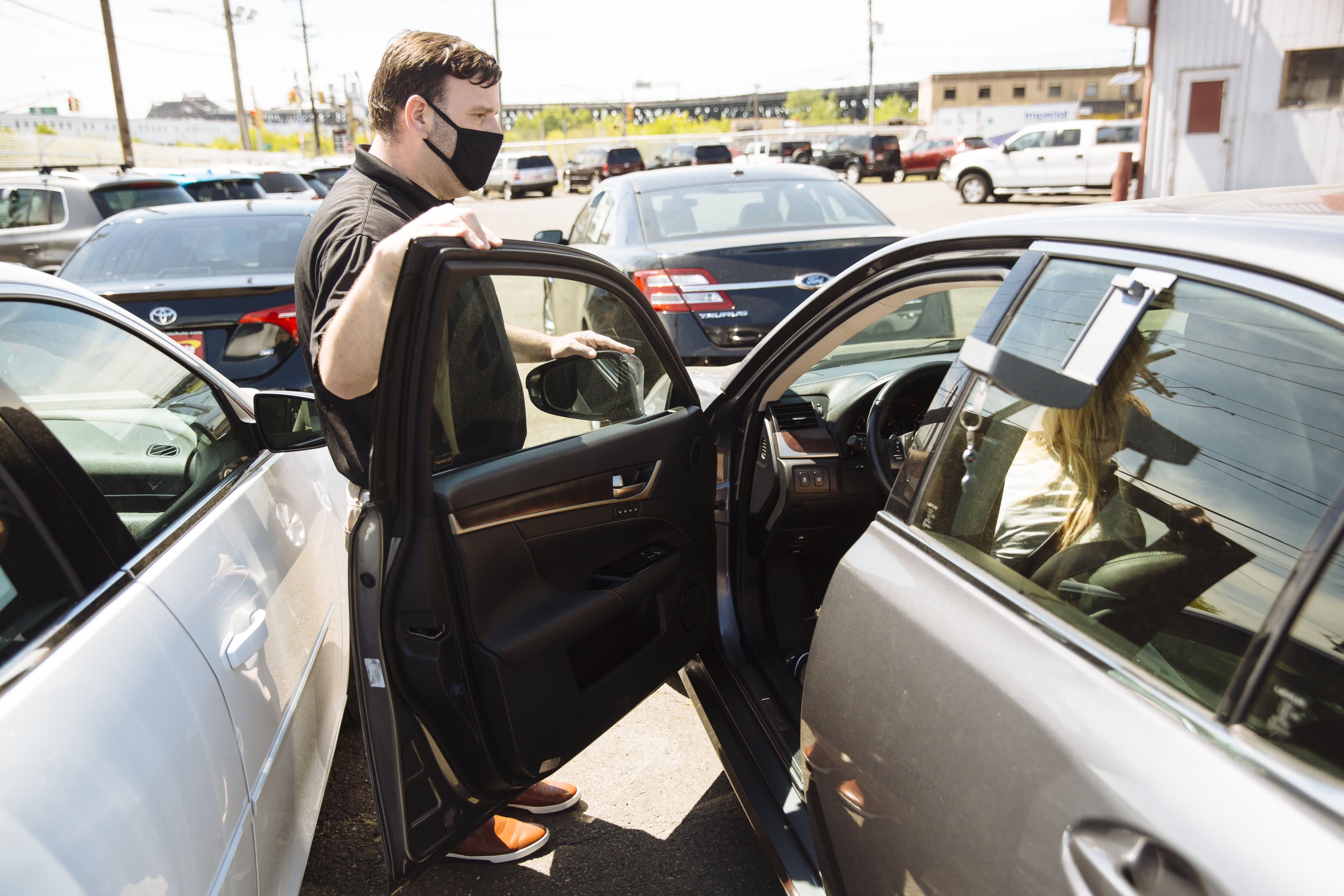Coronavirus crippled U.S. auto sales in 2020 but it could have been far worse

A car dealer shows a vehicle to customers at a dealership in Jersey City, New Jersey.
Angus Mordant | Bloomberg | Getty Images
Sales of new vehicles in the U.S. are expected to close this year down at least 15%, which would mark one of the industry’s worst annual declines since at least 1980.
In any normal year, such a rapid fall would have meant an industry in crisis. But in 2020, the overwhelming sentiment is “it could have been worse.”
“It’s been a rough year, but I think we’re ending in a much better place than we expected,” said Nick Woolard, director of automaker analytics at TrueCar. “Early on there was this sharp right turn that nobody anticipated that drove the whole industry into some pretty dark days and the forecasts all went really bleak.”
During the depths of the first peak of Covid-19 in the spring, sales of new vehicles collapsed as auto plants shuttered and many dealers were forced to close showrooms. J.D. Power forecast retail sales would decline by as much as 80% in April, leading to likely near-recession sales levels for the year.
But retail sales to consumers rebounded far faster than anyone forecast. Sales during the second quarter declined by about 34%. They were largely driven by low – even 0% — interest rates, historically long financing offers and people wanting to hit the open road instead of taking public transportation or airlines.
“A big comeback story of 2020 is without a doubt the recovery of retail vehicle sales, which have nearly returned to pre-pandemic levels,” said Jessica Caldwell, Edmunds’ executive director of insights.
2020 sales
Edmunds expects new vehicle sales to be down 15.5% this year when the final statistics are released in roughly two weeks. That’s in line with other industry estimates calling for sales of about 14.4 million to 14.6 million new vehicles in 2020 – down from 17 million or higher the past five years. Cox Automotive is forecasting a 15.3% decline, while TrueCar expects a 15% loss compared with 2019 sales.
TrueCar reports retail sales are expected to only be down 8% compared with 2019, while fleet sales to commercial and government customers are forecast to plummet 43%.
If the forecasts are correct, 2020 will be the fourth-largest annual decline for the U.S. auto industry since 1980 – behind a 19.1% loss in 1980 and 18% and 21.2% declines during the Great Recession in 2008 and 2009, respectively. But it could have been worse.
“This year presented the economy and the auto market with incredible challenges. As we close the year, it is remarkable to see how well the industry performed,” said Jonathan Smoke, chief economist at Cox Automotive.
Record profits
The lower fleet sales in addition to tight inventory levels due to plant shutdowns in the spring have led to better-than-expected earnings for automakers and record profits for many publicly traded dealer groups.
AutoNation, the largest dealer group in the U.S., reported record quarterly adjusted earnings per share of $2.38 for the third quarter, an increase of 102% compared with last year. That was led by a 40% increase in operating income despite a slight drop in quarterly revenue.
“It’s our absolute best quarter ever,” AutoNation CEO Mike Jackson told CNBC in October. “The demand for individual mobility has gone through the roof, and I think this pandemic/shelter in place has shifted the American psyche in a long-term way, and it’s hard to predict past five years, but for the next three to five years, there’s been a shift in demand.”
Other publicly traded dealer groups such as Group 1 Automotive, Lithia Motors and Sonic Automotive also reported various record results this year.




